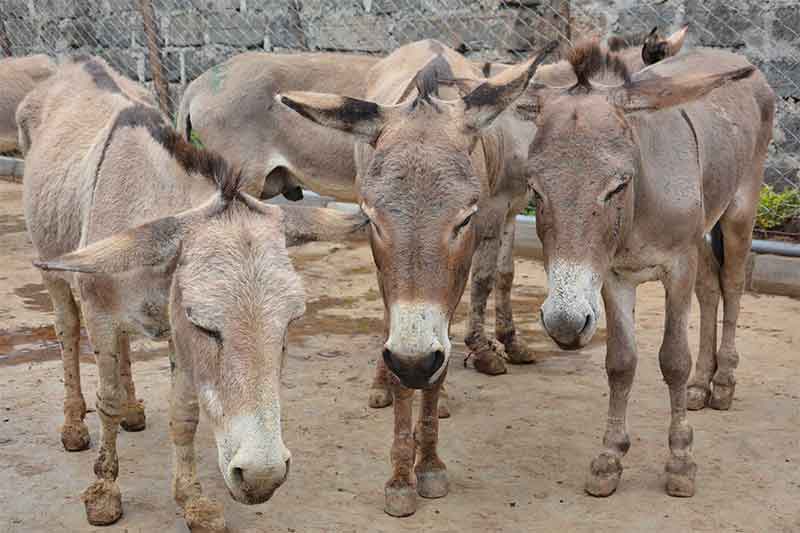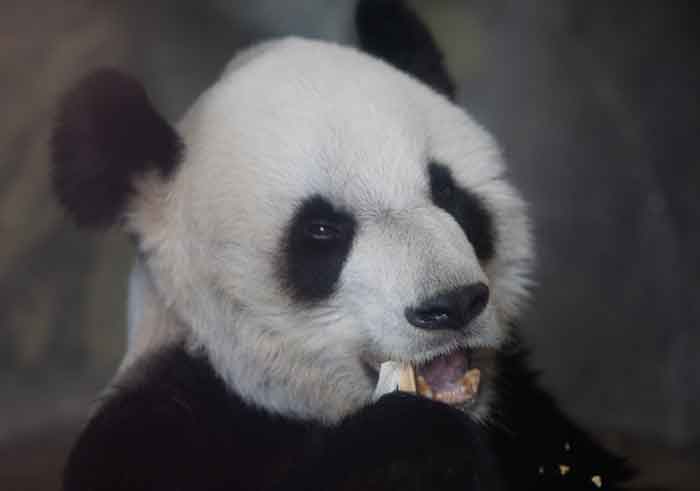
Animal-lovers everywhere and campaigners against cruelty to animals have welcomed the recent ban on slaughter of donkeys for their skins imposed by the leaders of Africa gathered at the African Union summit in Ethiopia recently. ( Reference 1 or R1)
This was a follow-up of a decision taken earlier in December 2022 at an African Union—Inter-African Bureau for Animal Resource Conference at Dar-es-Salaam, Tanzania which had called for such a ban.
Donkeys have been killed in millions in recent years to obtain gelatin for a traditional Chinese medicine ejiao. Other accounts say this is also used for some sweets, cosmetics and other products. China has been the main market driving this very cruel practice of mass slaughter of donkeys.
According to the Donkey Sanctuary, nearly 5.9 million donkeys have been slaughtered on a yearly basis globally, most of them in Africa. (R1)
Earlier China was relying most on slaughter of its own donkeys but when their numbers started decreasing at an alarming rate its companies and traders started taking most of the raw material based on donkey skins from Africa. (R2)
Now unless this demand is checked by strong measures in China there may be pressure to obtain the raw material from some other country or region, and there is need for adequate caution to prevent this.
While donkeys have suffered the most because of the skin trade, trafficking and slaughter, thousands of African rural communities and in particular women and children among them have also been harmed as donkeys used to be an important support for them for carrying out various tasks such as fetching water and carrying some other loads. (R1)
The initiative in Africa to protect donkeys must be widely welcomed and followed by other efforts to protect these gentle animals who are often the target of cruelty, exploitation and ridicule in many parts of the world.
People who are sincere and hard-working, simple and quiet should be highly valued for these virtues, yet their simplicity and sincerity are often misused by others. This can also be said about donkeys, who have much the same virtues and have suffered much the same fate. As they are less protected, in their case the mistreatment often extends to cruelty and worse.
Donkeys are among the least understood and the most mistreated creatures on our planet. Human beings mistakenly refer to the most stupid members of their own species as donkeys. This is just not correct. In fact behavioral studies of donkeys have found them to be sincere, playful, patient and keen to learn.(R3)
Munshi Premchand, the famous writer from India, has captured well the virtues of a donkey—“We have never seen a donkey getting angry…He (she) is resolute and steadfast in situations of gain or loss, joy or distress, reflecting many of the virtues of wise sages. Despite this, if someone calls them stupid, then this is a clear case of disrespect for more important virtues.”
Such appreciation and understanding of donkeys is however quite rare among most human beings. Cruelty or mistreatment is what donkeys often get for all their selfless service.
Donkeys serve very well as pack or load animals. They are used to carry loads of sand or bricks or clothes or any other goods. While covering the Od community known for their special skills in construction of foundations and in quarrying work In India, I learnt about the important contribution made by their donkeys.
In the Thar desert while reporting on water scarcity, I saw villagers going in search of water with their donkeys carrying several empty cans. When a water source was found, the cans were filled with water and if the villager had to go further ahead, the donkey would sometimes return home with the water-load entirely on its own.
Despite the donkeys fulfilling such useful and trustworthy roles, they are often overloaded resulting in very painful journeys for them. If they stop for rest they are beaten. Sometimes they just collapse due to overburdened walking for a long time.
In fact, donkeys being docile are often a target for beating without there being much reason for this. So the owner when frustrated or angry for reasons having nothing to do with the donkey may yet turn to beating the poor animal.
As donkeys are considered a cheaper animal, they are often underfed and veterinary care for them is neglected too. When too old or weak to work to expected capacity, they may just be left to die. Their meat is sometimes obtained in very cruel ways.
The non-domesticated or wild animal of this species is more frequently referred to as ass. The wild ass is badly threatened, in fact endangered, in several of its natural habitats (mostly in desert areas) in Africa, partly due to being hunted for meat and skin or certain body parts.
Hence there is an urgent need for the more specialized work of protecting donkeys/asses/mules and preventing cruelty to them, as well as mobilizing the support of common people for being more caring towards these gentle animals who have served humanity so well over the centuries.
Bharat Dogra is Honorary Convener, Campaign to Save Earth Now. His recent books include Planet in Peril, A Day in 2071, Protecting Earth fir Children and Man over Machine.
Notes and references
R1—The Donkey Sanctuary/News/ African union leaders agree to ban on donkey slaughter
R2—Africa’s donkeys are coveted in China; can the continent protect them? –The New York Times
R3—The Citizen.in—Donkeys suffer so much, need better care















































